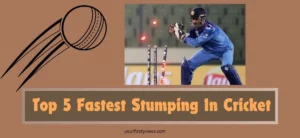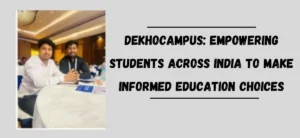
On June 21, 2024, the cricketing world lost a visionary mind with the passing of Frank Duckworth, co-creator of the Duckworth-Lewis-Stern (DLS) method, at the age of 84. Alongside his colleague Tony Lewis, Duckworth revolutionized the way cricket matches are adjudicated in cases of weather interruptions. His contribution to the sport has been monumental, ensuring fair play and competitive balance in rain-affected matches.
The Birth Of The Duckworth-Lewis Method
The Duckworth-Lewis method, initially introduced in 1997, was a groundbreaking statistical approach designed to determine the outcome of limited-overs cricket matches interrupted by weather conditions. Before its introduction, rain-affected matches often resulted in unsatisfactory and contentious conclusions, with many feeling that existing methods were unfair. The collaboration between Duckworth and Lewis, both esteemed statisticians, brought a scientific rigor to the problem, using complex mathematical algorithms to recalibrate the target scores based on the overs remaining and wickets lost.
A Life Dedicated To Statistics And Cricket
Frank Duckworth was an English statistician who held a deep passion for cricket. Born in 1939, his career was marked by a dedication to both academic excellence and a love for the sport. His partnership with Tony Lewis, another distinguished statistician, began in the early 1990s. Together, they worked tirelessly to create a method that could handle the unpredictable nature of weather in cricket, ensuring that matches could reach fair conclusions even under adverse conditions.
The DLS method, named after Duckworth and Lewis, was initially met with skepticism. However, its accuracy and fairness soon won over the cricketing community. It has since been adopted by cricket boards worldwide, including the International Cricket Council (ICC), and is a standard fixture in both domestic and international matches.
Enhancements And Legacy
In 2014, the method further refined with the addition of Australian professor Steven Stern, making it, the Duckworth-Lewis-Stern (DLS) method. This updated version incorporated new data and statistical models to keep pace with the evolving nature of limited-overs cricket, particularly the rise of Twenty20 (T20) cricket, which posed new challenges with its faster pace and different scoring patterns.
Frank Duckworth’s legacy extends beyond his statistical innovations. He was a passionate advocate for the game, frequently engaging with the cricket community to explain and defend the method he helped create. His work has been recognized with numerous accolades, including being appointed Member of Order of the British Empire (MBE).
Tributes From The Cricketing World
The passing of Frank Duckworth has elicited heartfelt tributes from across the cricketing world. Players, officials, and fans alike have expressed their gratitude for his contributions. The ICC, in a statement, highlighted the enduring impact of his work, noting that the DLS method has been crucial in maintaining the integrity and excitement of limited-overs cricket.
Former players who benefited from the fairness brought by the DLS method also shared their reflections. “Frank Duckworth changed the way we think about rain-affected matches,” said a former international cricketer. “His work ensured that games were decided in the spirit of fair play, and for that, we are all grateful.”
The Future Of The DLS Method
As cricket continues to evolve, so too will the methods used to ensure fair play. The DLS method stands as a testament to the power of statistical innovation in sports. It is a living legacy that will undoubtedly continue to be refined and adapted as the game changes.
Frank Duckworth’s passing marks the end of an era, but his influence on cricket will endure. His work, in collaboration with Tony Lewis, has set a high standard for the integration of science and sport. The DLS method remains a critical component of modern cricket, ensuring that every match, no matter the weather is finished.






